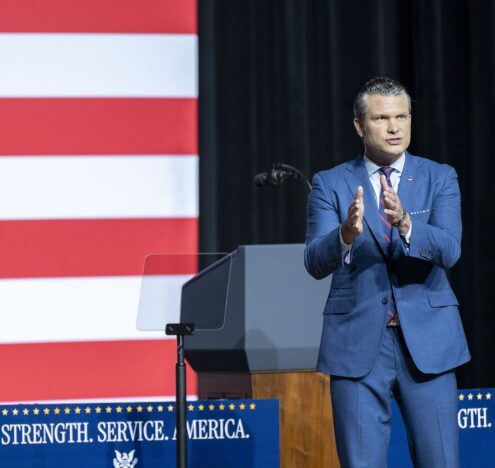We all have the right to a life free from torture. Every one of us. Torture is illegal in all circumstances, everywhere in the world. Yet, we know there are millions of people globally who have survived torture. And the number keeps growing. The UN High Commissioner for Refugees’ (UNHCR) Global Trends 2022 report shed light on the staggering number of forcibly displaced people worldwide — then at an unprecedented 110 million people.
Many of these forcibly displaced people have endured torture. In 2022, the UNCHR submitted resettlement applications for more than 116,000 refugees through its program and found that 27% (approximately 31,000 people) are survivors of violence and torture. At the Center for Victims of Torture (CVT), our research shows that as many as 44% of refugees, asylees, and asylum seekers who have arrived in the United States since 1980 have survived torture. In the United Kingdom, it is estimated that over 25% of refugees and asylum-seekers have reportedly endured torture in their countries of origin.
Survivors of torture have an enforceable right to rehabilitation, enshrined in the Convention against Torture and Other Cruel, Inhuman, or Degrading Treatment or Punishment. Many never receive the support they need and deserve. Survivors’ needs require a collective effort from governments, civil society organizations, healthcare providers, and the international community. It is essential to invest in capacity-building initiatives, train healthcare professionals in trauma-informed care, and establish specialized rehabilitation centers to provide comprehensive support to survivors.
The Challenges with Funding Rehabilitation Programs
In a 2021 statement, the Office of the UN High Commissioner for Human Rights (OHCHR) said that since 1981, the UN Voluntary Fund for Victims of Torture has helped an average of 50,000 survivors per year. That would’ve equaled to two million survivors supported in 40 years.
Survivors of torture face unique and devastating challenges that require specialized support and attention. The consequences of torture extend far beyond the physical injuries, often leaving survivors with deep psychological scars. Many struggle with distress, anxiety and depression, hopelessness, difficulty sleeping, and post-traumatic stress disorder (PTSD). These harms make it difficult to reintegrate into society and rebuild their lives, grappling with stigma, discrimination, and a lack of understanding from their host communities.
The irony of significant US government support for the Fund and SOT program, while it continues to operate the notorious Guantánamo Bay Detention Facility, is not lost on many. After more than two decades, the United States continues to hold many survivors of US torture.
Providing access to rehabilitation services is also a practical necessity. Services help survivors heal, regain their dignity, and actively participate in society. For example, a five-year study conducted by CVT with 193 Karen refugees from Myanmar, who are survivors of torture and trauma, found that those who underwent intensive psychotherapy and case management by CVT “showed significant improvements in depression, PTSD, anxiety, and pain symptoms and in social functioning at all time points, with magnitude of improvement increasing over time.” Additionally, patients who received the intervention demonstrated improvements in employment and posted significantly lower in-patient and out-patient costs than those who received “treatment as usual” at high-quality primary care clinics that were partners in the study.
US-based programs and organizations work closely with two mechanisms that directly support torture rehabilitation: the UN Voluntary Fund for Victims of Torture (the Fund), and the US government’s Services for Survivors of Torture (SOT) program, run by the Department of Health and Human Services Office of Refugee Resettlement. Both make grants to nongovernmental organizations that serve survivors directly — and both are under-resourced.
In 2022, the Fund had a budget of around $10 million. It received $15 million in applications it would have approved and funded if it had the resources to do so, but had to deny $5 million worth of otherwise successful proposals. The United States has long been the biggest contributor to the Fund (over 80% of its budget last year), a decision that Congress makes each year. Other countries need to do more. Last week, to commemorate the International Day in Support of Victims of Torture on June 26, 2023, the UN High Commissioner for Human Rights, President Joe Biden, and Secretary Antony Blinken reaffirmed their support for survivors of torture and called on for more resources for the Fund, as “demand for the Fund’s help is increasing enormously.”
The SOT program’s budget is almost twice the Fund’s, but the capacity it builds similarly pales in comparison to the need. Since taking office, Biden urged Congress to appropriate $27 million to the SOT program — the largest request ever. Advocacy groups have been asking for more, for a very long time. And while Congress has better supported the program over the last several years, it has done so only incrementally. Grantees remain stretched to provide support to those who desperately need it. For instance, Afghan and Ukrainian refugees were put on waitlists as programs were unable to accommodate them immediately, as were 222 former Nicaraguan political prisoners — a smaller group and all survivors of torture — when they arrived in the United States in February 2023.
As Congress works on the budget for 2024, supporting forcibly displaced people and survivors of torture must be a priority. For example, from extensive news reporting, we are all aware that the United States has provided the most aid to Ukraine since the conflict began last year, most of it being military. And the conflict has created the largest displacement crisis since World War II with over 11 million people. So, although military aid to Ukraine and other allies is important, Congress and the US government must also consider the human cost of such conflicts. Untreated wounds of torture and war trauma which continue to linger worsen over time and can lead to a mental health crisis or even prove to be fatal.
Gitmo’s Shadow
The irony of significant US government support for the Fund and SOT program, while it continues to operate the notorious Guantánamo Bay Detention Facility, is not lost on many. After more than two decades, the United States continues to hold many survivors of US torture. They too have the right to rehabilitation, yet they are not even provided adequate medical care. Earlier this month, Senator Dick Durbin (D-Ill.) commented on the astounding and wasteful cost of Guantánamo: $540 million per year. Congress should be supporting the administration’s effort to close Guantánamo and appropriate this cost elsewhere, which could benefit many more people who need support.
Now more than ever, as conflicts, climate catastrophes, poverty, and brutal regimes endure — and widespread torture remains — the world must not lose sight of the human cost of their devastating impacts. As Filippo Grandi, Commissioner of UNHCR stated, “These figures show us that some people are far too quick to rush to conflict, and way too slow to find solutions. The consequence is devastation, displacement, and anguish for each of the millions of people forcibly uprooted from their homes.” Now is a time for hope and healing because, with enough support, both are possible.




















